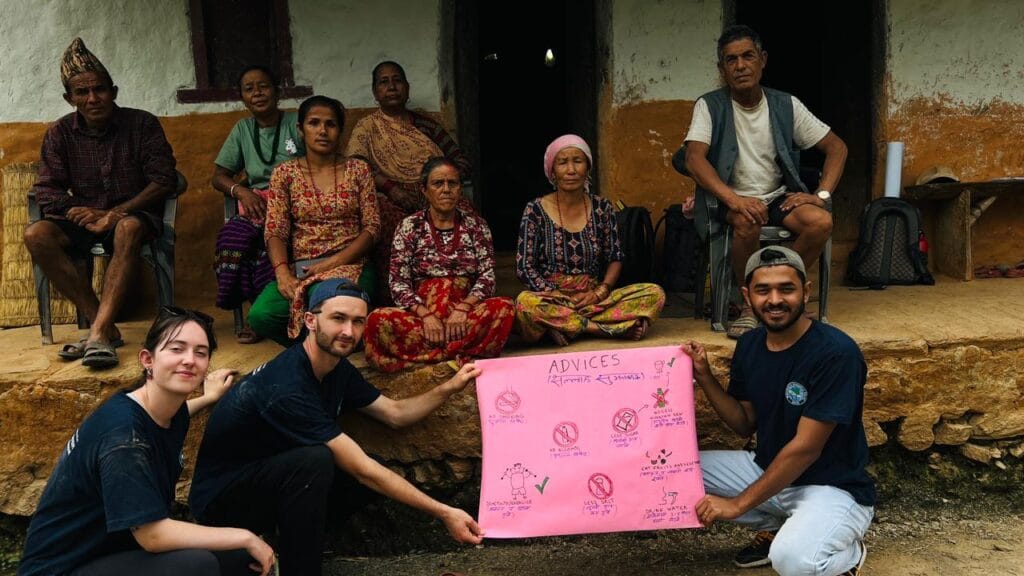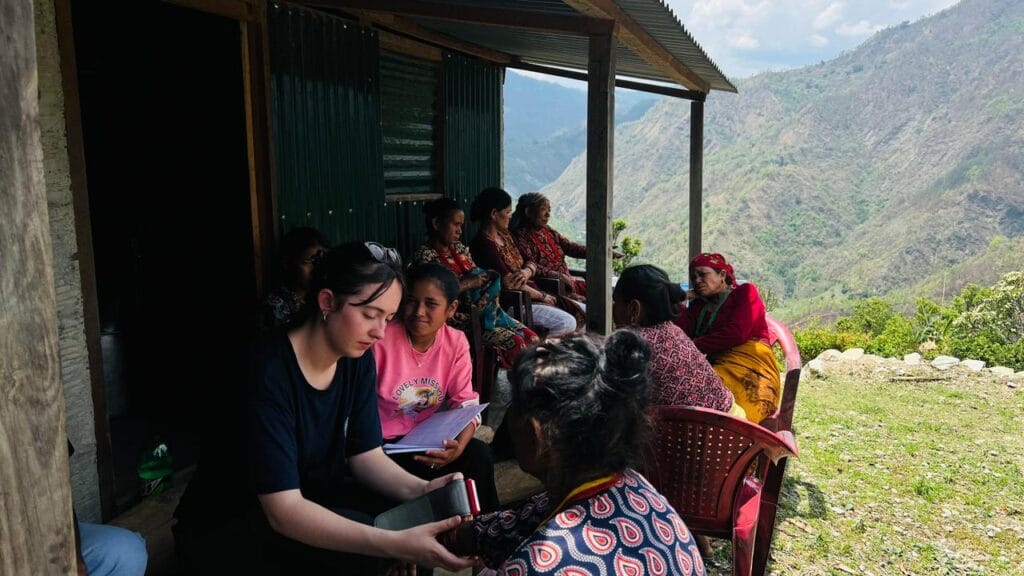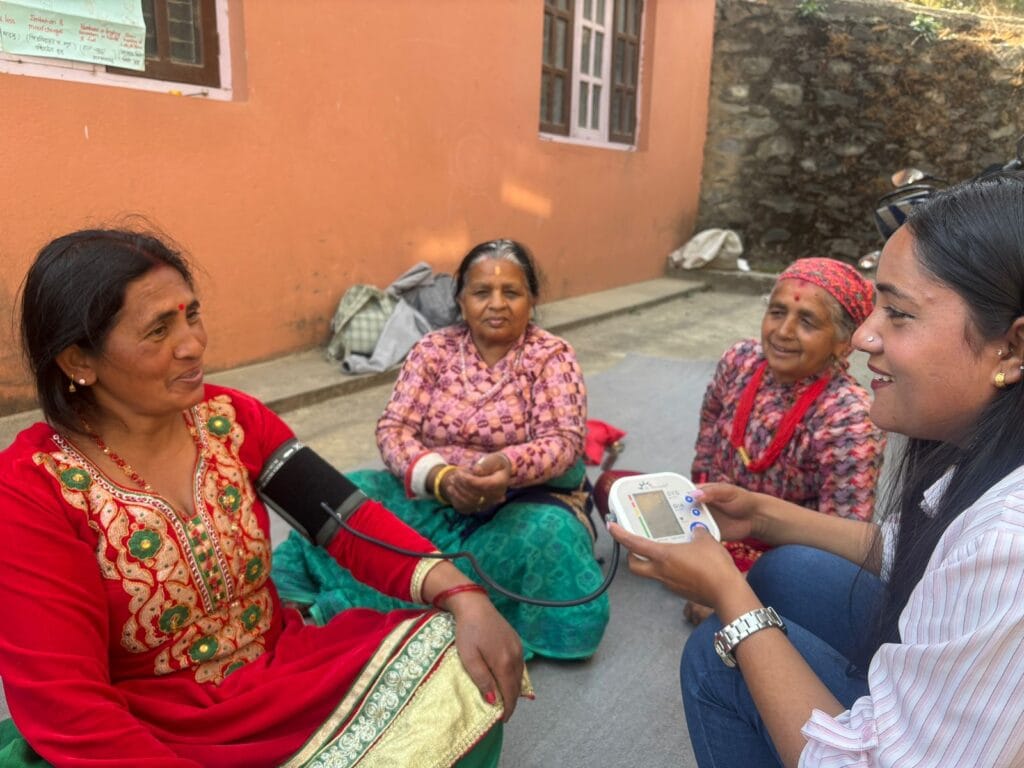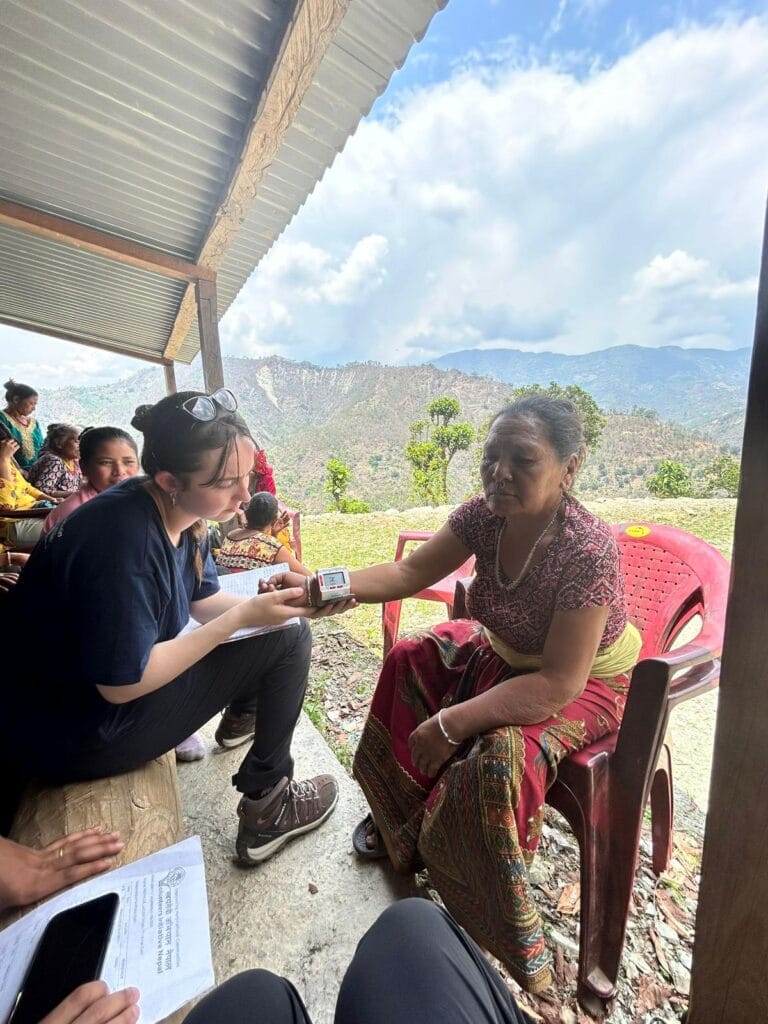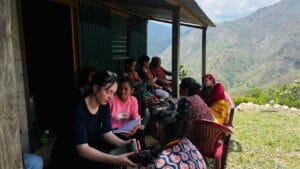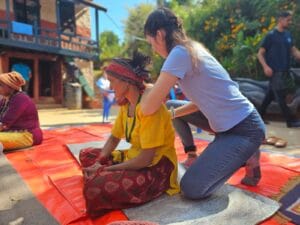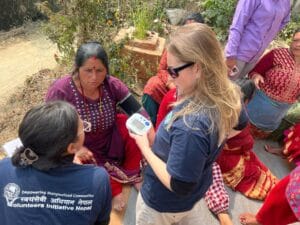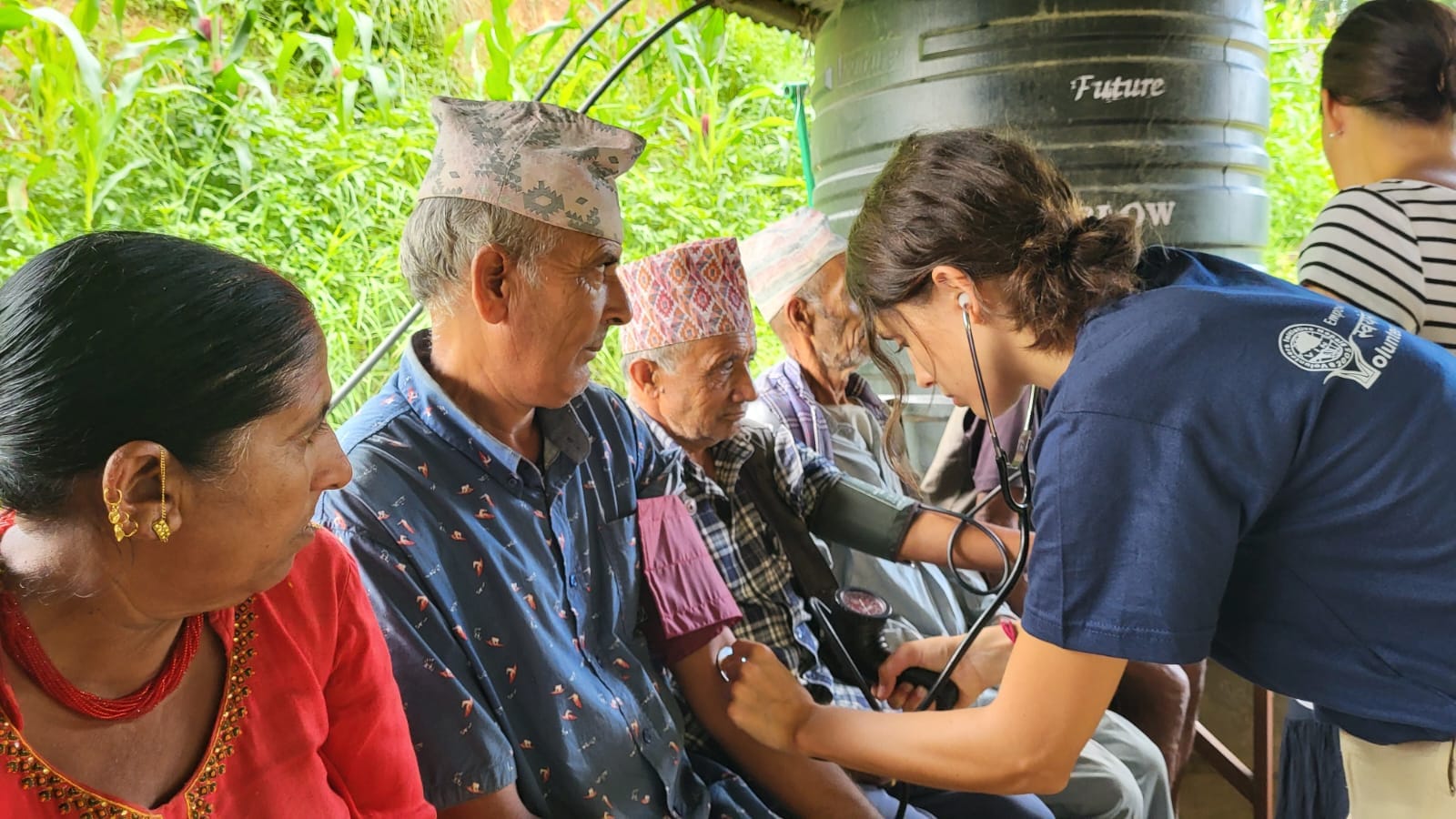
Medical and Healthcare Programs in Nepal
Volunteering in Medical and Healthcare Programs can be a life-changing experience for anyone looking to make an impact. Nepal—a nation known for its towering Himalayas and vibrant cultural heritage—faces critical shortages in the healthcare sector, especially in rural and marginalized communities. Through structured Healthcare Programs, volunteers worldwide can offer meaningful support while gaining unparalleled real-world experience. Suppose you’ve been searching for Medical Programs Abroad that combine professional growth with community development. In that case, Nepal provides a remarkable opportunity to immerse yourself in authentic local culture, learn from experienced professionals, and contribute to better health outcomes for those in need.
Project Description
Introduction
Nepal’s Medical and Healthcare Programs aim to strengthen existing clinical facilities, promote preventive health measures, and enhance overall well-being in underserved communities. Designed for medical students, healthcare professionals, and compassionate individuals worldwide, these Healthcare Programs focus on direct patient care, health education, and collaborative community outreach.
Background
According to the World Health Organization (WHO), Nepal has approximately 0.58 physicians per 1,000 people, reflecting a significant shortage of medical professionals in rural regions. Limited access to quality healthcare affects thousands of families annually, especially women and children. Many local clinics and hospitals lack essential medical supplies, diagnostic equipment, and specialized training. This project addresses these challenges by bringing volunteers through International Medical Programs and Global Healthcare Programs that prioritize capacity-building, resource-sharing, and sustainable community engagement.
Key Objectives
- Provide Essential Healthcare Services: Offer primary care, maternal health support, and preventive screenings in under-resourced areas.
- Enhance Local Capacity: Train community health workers through Healthcare Education and Medical Training Programs to ensure long-term impact.
- Promote Preventive Medicine: Educate families on nutrition, hygiene, and disease prevention, focusing on communicable and non-communicable diseases.
Why Volunteer for This Project?
The Need
Nepal’s healthcare system requires robust support to tackle communicable diseases, maternal mortality, and malnutrition. The Nepal Demographic and Health Survey highlights that maternal mortality rates remain a pressing concern, disproportionately affecting women in remote villages. By participating in Medical and Healthcare Programs, you become part of the solution to these critical issues. According to the Ministry of Health and Population in Nepal, up to 70% of rural households lack convenient access to a well-equipped healthcare facility, underscoring the importance of community outreach efforts.
Global Relevance
Improving healthcare in rural Nepal aligns with the United Nations Sustainable Development Goal 3 (Good Health and Well-being). By volunteering in these Healthcare Programs, you’re advancing global agendas aimed at reducing child mortality, improving maternal health, and combating various diseases. These projects also tie into other development aims, such as SDG 10 (Reduced Inequalities), by addressing gaps in healthcare access.
Local Voices
“We have seen firsthand how dedicated volunteers can change lives in our small town. With more consistent medical support, our children have a brighter, healthier future,” says Sunita, a local health worker in Nuwakot, Nepal. Her words underscore the community’s gratitude and highlight the difference volunteers can make.
Volunteer Roles and Responsibilities
10 Core Tasks
- Basic Health Assessments: Assist in measuring vital signs like blood pressure, heart rate, and temperature during routine check-ups.
- Patient Intake and Triage: Help register and guide patients to relevant healthcare providers in local clinics or mobile camps.
- Community Health Workshops: Conduct group sessions on hygiene, sanitation, and nutrition under Healthcare Education Programs.
- Support Maternal Care: Work alongside midwives or local nurses to support prenatal and postnatal care.
- Vaccination Drives: Help organize and deliver immunizations in remote villages, contributing to Clinical Programs in Medicine initiatives.
- Data Collection and Research: Collect community health data to assist in ongoing epidemiological studies within nonprofit healthcare programs.
- Medical Supplies Management: Receive, sort, and distribute essential items—like bandages and medicines—donated to the program.
- Hospital or Clinic Assistance: Shadow local doctors and nurses, supporting patient rounds and learning about Medical Residency Programs in resource-limited settings.
- Health Promotion Campaigns: Collaborate on outreach activities, including radio announcements and school talks, raising awareness about preventable diseases.
- Skill Transfer Workshops: Share specialized knowledge in first aid, mental health, or physiotherapy with local health workers looking to expand their capabilities.
Daily Activities
Below is a sample daily schedule, offering insight into what your routine might look like:
- 08:30 – 09:15: Breakfast at your volunteer house or homestay.
- 09:15 – 10:00: Commute or walk to the local clinic/hospital.
- 10:00 – 13:00: Patient intake, initial assessments, or assisting in vaccination drives.
- 13:00 – 14:00: Lunch break at a nearby cafe or community center.
- 14:00 – 16:00: Health workshops or patient follow-ups on disease prevention and nutrition.
- 16:00 – 17:00: Walk back to accommodation.
- 17:00 Onwards: Cultural immersion, language lessons, or free time for rest and exploration.
Special Projects
Volunteers with specific expertise, such as dentistry or mental health counseling, can initiate specialized programs. For instance, a volunteer-led mental health campaign might run weekly sessions to address stress, anxiety, or postpartum depression. These initiatives often form part of Medical Internship Programs for those seeking academic credit or practical experience.
Skills and Requirements
Required Skills
- Empathy and a strong desire to help communities with limited medical resources.
- Basic understanding of medical ethics and patient confidentiality.
- Willingness to adapt to new cultures and working conditions.
Eligibility
- Open to participants aged 18 and older. Younger volunteers may need parental or guardian consent.
- A background in healthcare, medicine, or public health is ideal but not mandatory. Enthusiastic individuals from other fields are also welcome.
Preferred Skills
- Previous experience in healthcare or social work.
- Familiarity with first aid and CPR.
- Knowledge of Health Science Programs or Healthcare Career Programs is a bonus for more advanced roles.
Cultural Experience
Cultural Immersion
Nepal is rich in festivals like Dashain, Tihar, and Holi. Volunteers have the chance to celebrate these events alongside local communities, offering unique insights into Nepal’s cultural fabric. From trying local cuisines like Dal Bhat to exploring centuries-old temples, every day is an opportunity to deepen cultural understanding.
Language Learning
While English is spoken in many hospitals, knowing a few Nepali phrases can go a long way in building rapport. Volunteers may participate in basic language classes and learn greetings like “Namaste” (a respectful hello) or “Dhanyabad” (thank you).
Logistics and Support
Accommodation
Volunteers typically stay in shared accommodations or homestays near project sites. Rooms are modest but comfortable, with essential amenities like bedding and basic furniture. Staying with a local family provides real immersion, ensuring you experience Nepali hospitality first-hand.
Meals
- Three standard Nepali meals daily, usually Dal Bhat (lentils and rice), vegetables, and occasional meat.
- Vegetarian options are widely available, and dietary requirements can be accommodated upon request.
Transportation
Upon arrival, an airport pickup will be arranged. Depending on the distance to clinics or community centers, volunteers may walk, carpool, or use local transport for daily commutes.
On-Site Support
A local coordinator or healthcare professional will be your primary point of contact. They’ll help you navigate clinic protocols and language barriers and ensure safety. Additionally, volunteer support staff can assist with any concerns—from lost luggage to scheduling changes.
Health and Safety
Travel insurance is strongly recommended. Volunteers should be current on routine vaccinations, such as Hepatitis A, Tetanus, and Typhoid. For emergencies, local staff will guide you to the nearest hospital or arrange evacuation if necessary.
Program Fees and Inclusions
Learn more about the fee structure and what is included on our Program Fees page. Typically, fees cover accommodation, meals, in-country support, and administrative costs. Volunteers are responsible for flights, travel insurance, and personal expenses. This cost-sharing model ensures that Medical and Healthcare Programs remain sustainable while providing the most significant benefit to local communities.
Impact and Outcomes
Volunteer Impact
- Professional Growth: Gain hands-on experience that may boost future career prospects in medical or residency programs abroad.
- Enhanced Teamwork Skills: Work alongside healthcare professionals from diverse backgrounds, learning crucial collaboration and problem-solving skills.
- Personal Fulfillment: Contribute to life-saving interventions and community betterment, an experience that fosters lasting friendships and global awareness.
Community Impact
- Strengthened Local Clinics: Volunteers help fill staffing gaps, providing added capacity to overburdened facilities.
- Education and Prevention: Workshops on hygiene, nutrition, and disease prevention reduce healthcare costs in the long run.
- Quantifiable Results: Last year alone, Nonprofit Healthcare Programs in Nepal reported that volunteers aided in over 5,000 patient consultations, contributing directly to improved health statistics in targeted districts.
Success Stories and Testimonials
Volunteer Experiences
“I spent six weeks volunteering in rural Nepal. The experience reshaped my perspective on public health,” says Mariah, a student from the UK. “Working in Medical Internship Programs gave me practical skills that textbooks could never offer. I’m now more confident about pursuing a career in Healthcare Education Programs.”
Local Impact Stories
A small village near the Kathmandu Valley significantly reduced waterborne illnesses after volunteers ran a month-long hygiene campaign. “Children used to fall sick frequently,” recalls a local mother. “Now we rarely have cases, thanks to the workshops. We understand the importance of using clean water and washing hands properly.”
Application Process
Ready to inspire and empower? Follow these steps to join our Medical and Healthcare Programs in Nepal:
- Complete the Online Application: Visit VIN to fill out the form.
- Submit Your Resume: Attach your CV and two professional or academic references.
- Await Confirmation: Look out for a confirmation email with further instructions.
- Pay the Booking Fee: Secure your spot with a €150 program booking fee.
- Receive the Pre-Departure Pack: Get comprehensive guidelines and training material before departure.
- Final Payment: Process the remaining program fee upon arrival or via wire transfer.
Frequently Asked Questions (FAQs)
Do I need prior medical experience to join these programs?
While some roles in Medical Programs Abroad benefit from a background in medicine or public health, many positions only require empathy, a willingness to learn, and basic training that we provide on-site. Whether you’re a medical student, professional, or simply passionate about global healthcare programs, you have a role.
What if I don’t speak Nepali?
No worries! English is commonly used in higher educational and clinical settings in Nepal. Additionally, ViN offers basic Nepali lessons to help you communicate with local patients and staff more effectively. This is a great way to immerse yourself in the culture while contributing to healthcare education programs.
Are there opportunities for long-term volunteer work?
Absolutely! ViN offers flexible durations for international medical programs, ranging from 2 weeks to 6 months. If you want to extend your stay, you can also explore other healthcare career or health science programs in Nepal. Long-term volunteers often take on leadership roles and contribute to sustainable projects.
How safe is Nepal for volunteers?
Nepal is generally considered safe for travelers, and ViN prioritizes your safety with 24/7 on-site support. We recommend standard precautions, such as obtaining travel insurance and familiarizing yourself with local customs. Our team ensures that all nonprofit healthcare programs are conducted in secure environments.
Can I get academic credit for volunteering?
Yes! Many volunteers, especially those enrolled in medical training programs or university-based clinical programs in medicine, arrange academic credit through their institutions. ViN provides all necessary documentation to support your application. Be sure to consult with your academic advisor for specific requirements.
What is the typical group size?
Group sizes vary depending on the season and project location. Typically, you’ll work with a small team of volunteers and local health professionals, which fosters close interaction and personalized experiences. This setup is ideal for those seeking hands-on experience in medical internship or residency programs.
Is Nepal accessible for people with physical disabilities?
Some clinics and volunteer houses in urban areas are accessible. However, rural settings may pose challenges due to uneven terrain and limited infrastructure. If you have specific needs, we recommend discussing them with our coordinators in advance. ViN is committed to making healthcare programs inclusive and accommodating for all volunteers.
Join us to Make a Difference!
Apply now or contact us at support@vin.org.np to start your journey.
Your volunteer service can bring lasting change to the people you serve and enhance your personal and professional development.
Gallery
